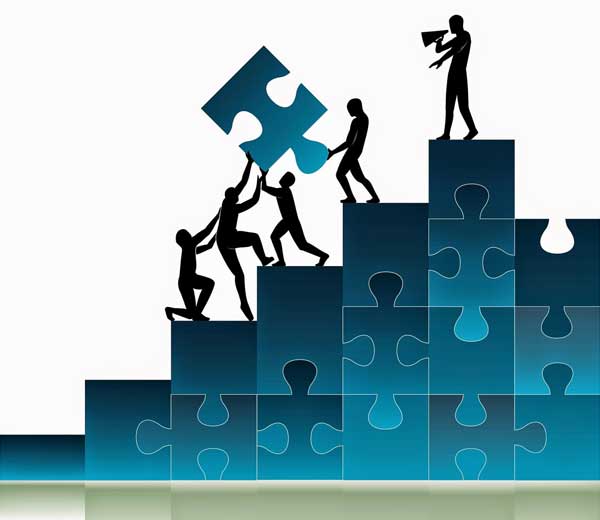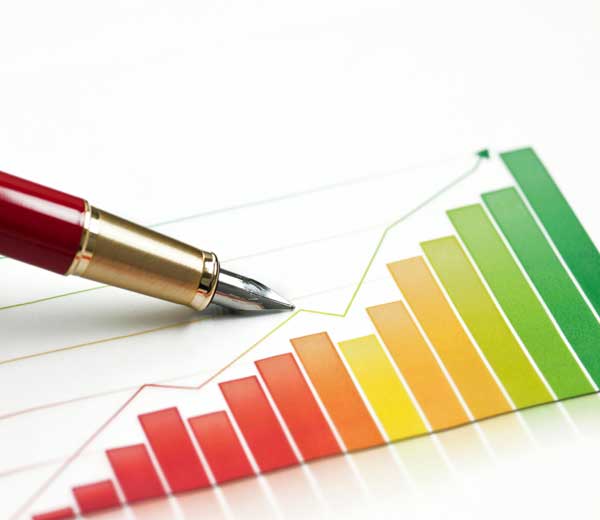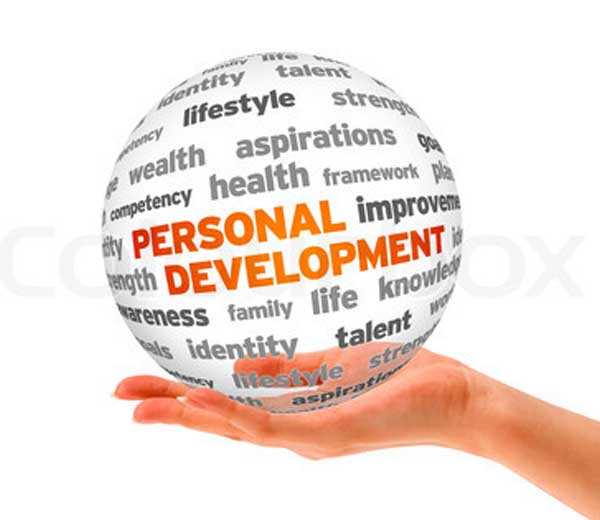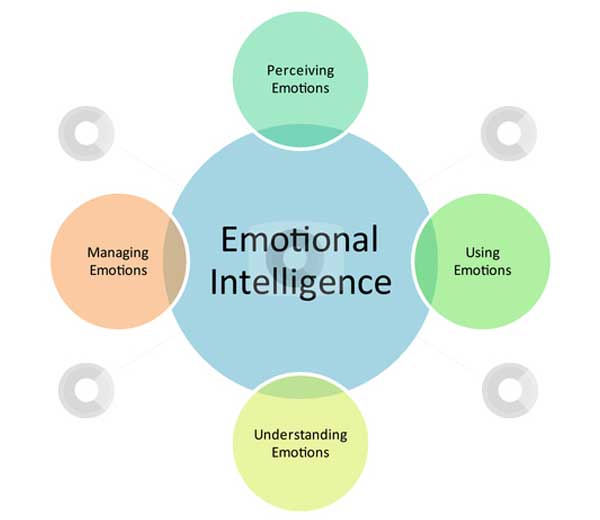
10 Tips for Personal Self Development
Defined as the skills or ability necessary to identify, assess and control the emotions of oneself, other people or entire groups, emotional intelligence is a concept that has become widely popular in management texts and related literature for its ability to enhance and capitalize on the human potential of an organization.
Seeking to support a leader's cognitive, emotional and physical resources, the use of emotional intelligence is a modern tool of effective management, enabling the individual to manage a wide range of employees that are often performing in a unique set of roles. In addition, emotional and personal competencies are two primary factors that are shown to be directly linked to performance within a work environment, making their identification and analysis essential for effective management as well as the increased development of the organization's human capital.
It Pays to be 'Likeable'
In part, emotional intelligence is a response to the problems businesses face in the modern world. With tighter budgets, escalating costs and the continuous demand to produce more for less, there's a need to develop a higher standard for leadership skills, ones that will effectively address the challenges of high employee turnover, a rapidly changing business environment and the ever-increasing demand for improved products and services. And at least in part, the solution to these problems is found in a leader who possesses technical knowledge as well as the social and emotional abilities that will enable them to meet and beat the afore mentioned challenges and maximize the human potential of their organization while achieving their own personal agenda.
Any organization at the forefront of its industry needs to retain the best employees to remain competitive. And if you take a look at the factors that contribute to the highest levels of creativity and effectiveness in the workplace within these types of businesses, you'll find components of emotional intelligence 9 out of 10 times.
That's because duration of employment is directly linked to an individual's relationship with their immediate supervisor, with some figures reporting that only 11 percent of employees who rated their boss as 'excellent' would consider looking for a new job. This figure is in comparison to the 40 percent who would consider leaving after rating their boss 'poor'.
Moving Up Requires More Than Just Technical Capability
Your skills can land you a great job but emotional intelligence is what enables you to keep it and, more importantly, get promoted and motivate those around you. In fact, some psychologists believe that emotional intelligence matters twice as much as both technical and analytic skills combined. And the higher the individual moves up within an organization, the more crucial emotional intelligence becomes - not really a surprise given the high degree of loyalty required to inspire people toward achieving an expansive, complex or long-term goal.
To climb the modern corporate ladder, a leader must be competent within their chosen field but also have a finely-tuned sense of emotional intelligence. Specifically, they are typically expected to be more positive, approachable, warm, empathetic and optimistic, traits many believe to be more important than traditional cognitive intelligence in the successful achievement of workplace goals. The reason for this may be due to the fact that a focus on emotional intelligence often includes the ability to contain any negative feelings and focus instead on a positive outcome - a capability that is vital for high-reaching leaders and executives.As you may know from my previous communication with you, personal self development is a big deal to me. I could easily say this industry saved my life. When I was living in my car, selling above ground swimming pools in Louisiana, I hit a new low. I was sitting in my car wondering if there was a better way.
I pulled out a cassette tape of Anthony Robbins a friend had given me. I had heard it before but I hadn′t LISTENED to it. My mind was open and the time couldn′t have been better for me to LISTEN to his message?. from that point on, my life became "the better way". I hope this message finds you pondering the same questions and that you are ready to "LISTEN".
This topic can encompass anything that involves your transformation as a person. It means becoming the best you can be and reaching towards your potential. When you become a 'better' person than you were yesterday (this does not mean better than another person) your life and it′s circumstances improve. This is usually achieved by looking internally and then changing the way you act externally.
When it comes to doing something, planning what you intend to do is essential. Writing down what you want is the first step. It′s no different when it comes to your personal self development. Plan for it. Keep it brief and monitor what happens. Write down the results in a diary. Writing down what you want and what you get clarifies your thought process and cements your intention.
You are allowed to change or adjust your plan whenever you wish. If there is no success as you follow the steps in your plan, that′s your signal to review what you have done or to adjust your plan.
Here are 10 tips to consider for your self development plan
1. Start Now Do something about your personal development plan today. It′s going to take some time to achieve lasting change so you need to start now. You can build on what you do today, tomorrow. Don′t become a pro at crastination!
2. Baby Steps To make a plan you need to include steps. Break a large goal into it′s smallest components. Keep the end result in mind as you focus on the smaller bite sized steps.
3. Learn From Other People You can gain from the success of other people and you can learn from their mistakes. Your own experience is a harsh teacher so learn from the mistakes of others. If you can find a mentor or coach your task will be easier.
4. Embrace Change The world is changing all the time. Even if you do nothing you will change by default as the world turns. There is no escape from this. If people and ideas didn′t change we would all still be living in caves. Your personal self development plan needs to include how you are going to change, what action will you take? Only action leads to results. "I see better than I hear" comes to mind here.
5. Be Accountable You are responsible for your own progress. You are responsible for what you are today and where you are today. That means it′s your job to initiate the steps involved in your personal development plan. If you don′t bother, no one else will. It also means you own the result and no one else is to blame. Buck stops here!
6. Be Grateful & Recognize Your Worth Focus on what you already have. Think about how others benefit from what you do. If you improve yourself, those benefits will increase. Your personal development is for others, as well as for you.
7. Be Intentional Whatever you intend becomes your reality. Find your true intention before you resolve to do something and make sure you really want what you say you want. If your goal and your intention are not aligned, then you?ll think up lots of excuses and all sorts of situations to prevent your progress.
8. Challenge Yourself Your goals need to be just out of reach. If you reach for an impossible target, you′re setting yourself up for a failure. If you stick to what′s easy, you′re denying yourself the satisfaction of achievement and only minimal change will occur. Find that middle ground with a stretch goal in your personal self development.
9. Follow Your Passion It′s no good doing things that you don′t like. Chose actions that appeal to you and are in line with your values. Pick people to help you that you like being around. Make sure you′re following your heart while not running from the hard issues. Become a Master in the Art of Living where people can′t tell if you′re working or playing because, to you, you′re always doing both!
10. Keep Going & NEVER Give Up Life works in cycles and moves to a rhythm. You will have up and downs. When you hit a slow point or things don′t seem to be moving, don′t give up, keep going. There is no such thing as continual rapid advancement and that means your personal development plan needs to be achievable and balanced. Find your rhythm and go with the flow. There′s no such thing as finished personal self development. You can go on learning, changing and renewing for all of your life.




